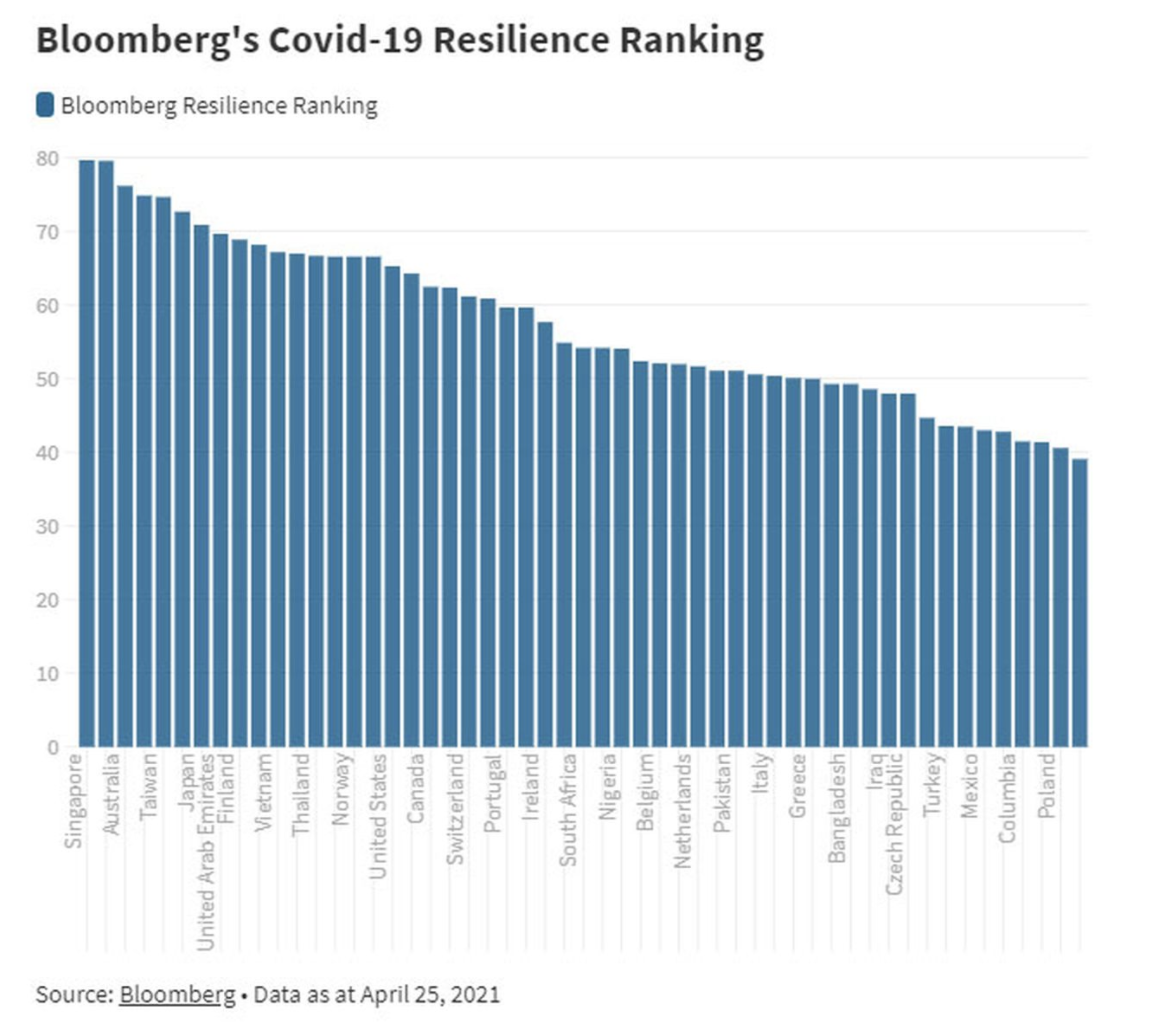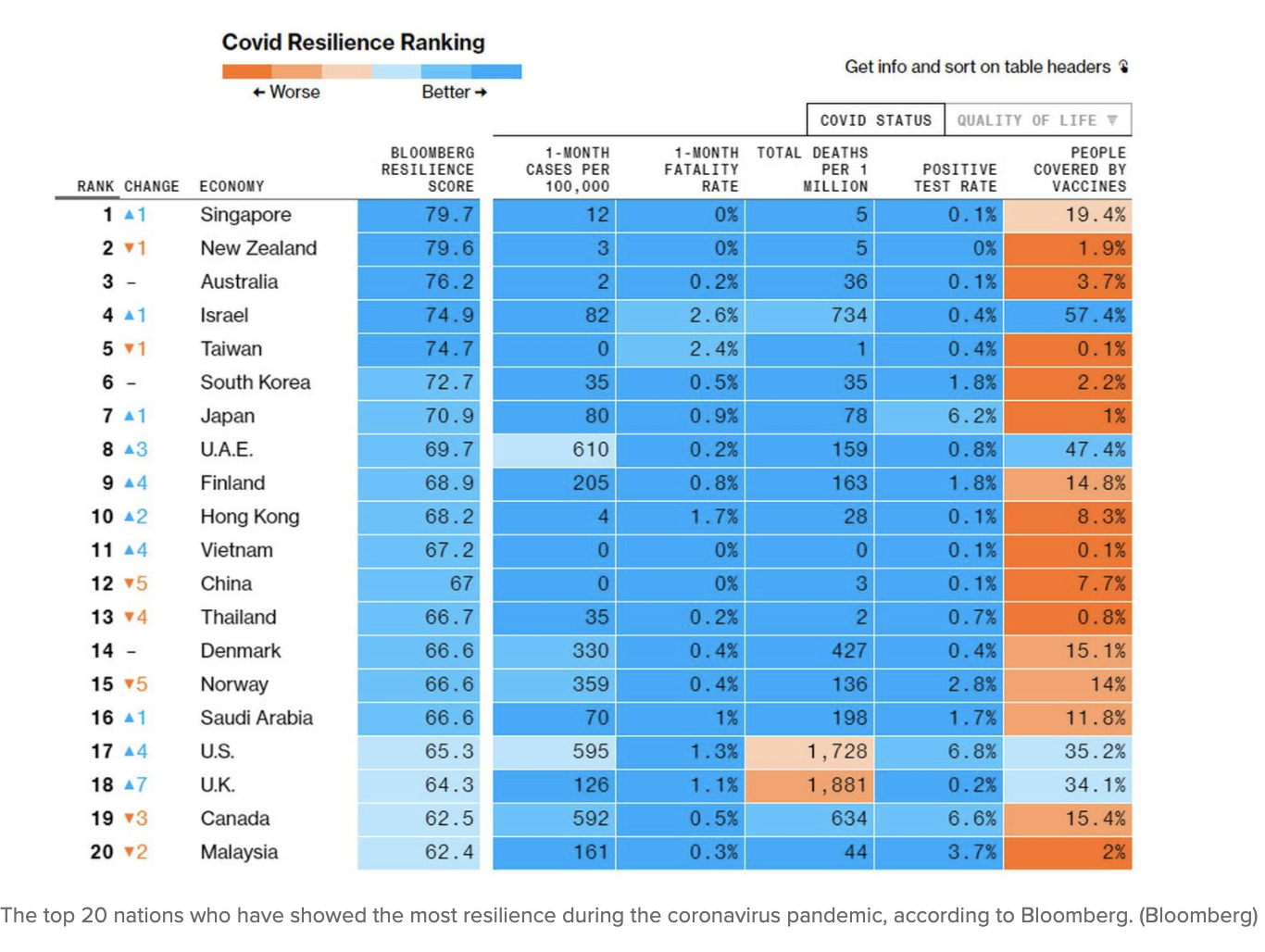Singapore overtakes New Zealand as the pandemic's most resilient country
ASSA
|
2021-04-27 11:56:35
New Zealand is no longer considered the best place to be during the
COVID-19 pandemic, dropping to the number two spot, while Australia remains in third place.
Singapore, which was previously ranked second, is now the most resilient country during the pandemic, according to the global media company.
The global rankings pull together case data, fatality rates, positive test rates, and vaccination data to calculate the final score. Singapore scored 79.7, New Zealand 79.6 and Australia on 76.2.

"Singapore has already administered vaccines equivalent to cover a fifth of its population, an aspect of pandemic control that other virus eliminators like New Zealand, Australia and Taiwan are lagging on," Bloomberg reported.
In Singapore, 19.4 per cent of the population is covered by the vaccine, while New Zealand has one of the lowest vaccination rates with just 1.9 per cent of the population covered.
Australia had vaccinated 3.7 percent of population, as of April 25th, with 1.937 million doses being administered.
While New Zealand may have dropped from the top spot, its successes were still praised. Bloomberg noted the success of the country's COVID-19 response – as well as that of Australia's – has provided a "pre-pandemic quality of life".
"Now No 2 after a five-month run at the top, New Zealand emphasised communication from the start, with a four-level alert system that gives people a clear picture of how and why the government acts as the outbreak evolves. Like China, Singapore and Australia, it also shut its borders, which has proven a key metric for containment success," the report read.

Israel and Taiwan were ranked second, third and fourth, respectively, while Argentina, Poland and Brazil were ranked the three worst countries.
While the latter three places have vaccinated significant portions of their populations,
aggressive variants of the virus have resulted in new infection waves. Poland, for example, has vaccinated 13 per cent of its population, but it's reported 1377 cases a month per 100,000 with a positive testing rate of 18.9 per cent.
The United States and United Kingdom were ranked 17th and 18th, respectively, with some of the highest vaccination rates – 35.2 per cent and 34.1 per cent – but some of the worst fatality statistics – 1728 and 1881 deaths per million.
Singapore's COVID-19 response has been hailed from the outset, thanks, in large part, to its experience with the SARS epidemic in the early 2000s. In the years following the SARS outbreak, Singapore ensured its infrastructure was able to handle future epidemics or pandemics. Isolation hospitals were built, negative pressure rooms were created and legislation was even put in place.
To date, according to data from the World Health Organisation (WHO), Singapore has reported 61,006 confirmed cases and 30 deaths. As of April 5, 1.66 million vaccine doses have been administered.







